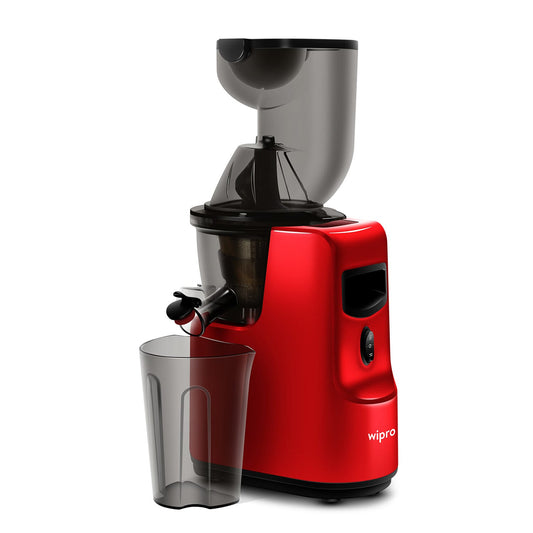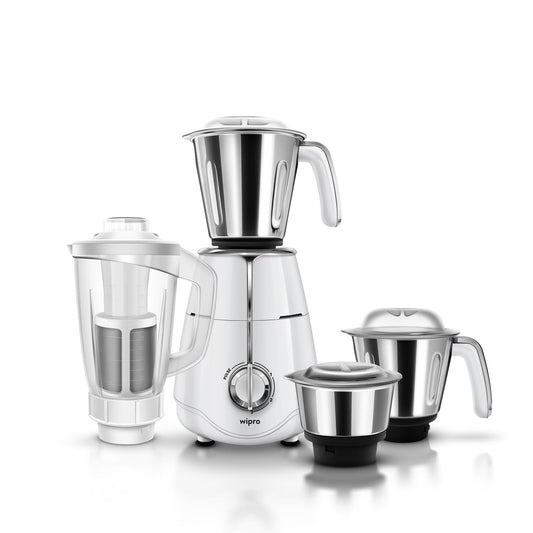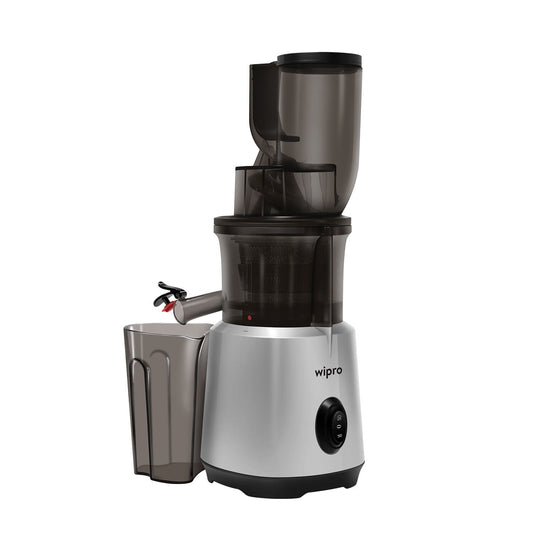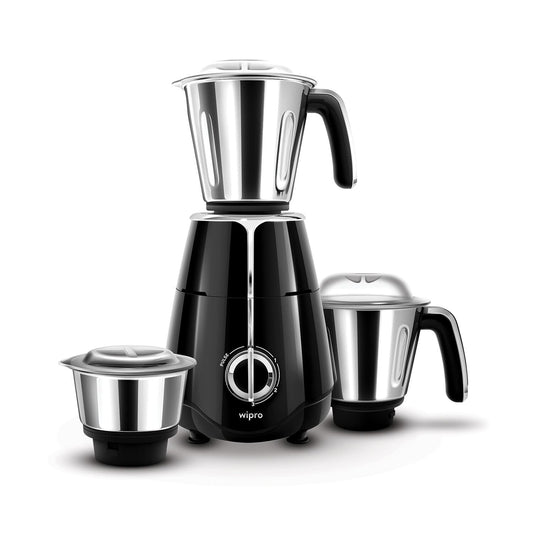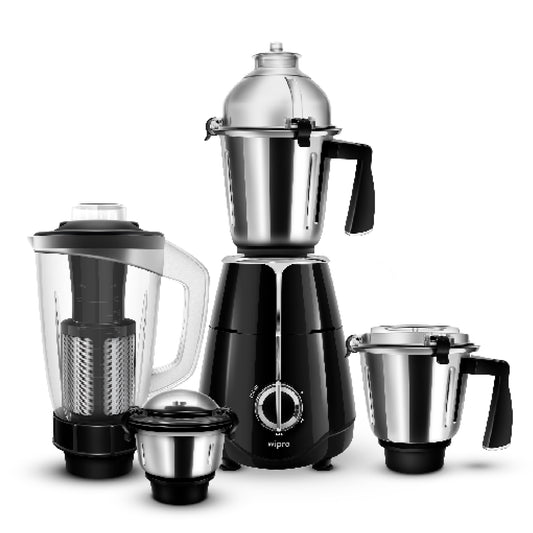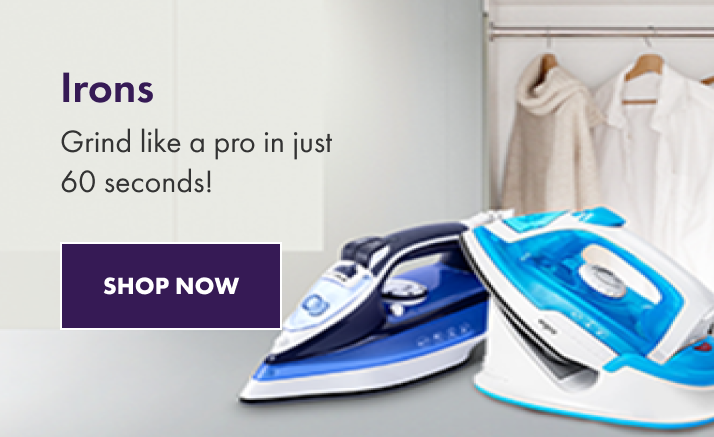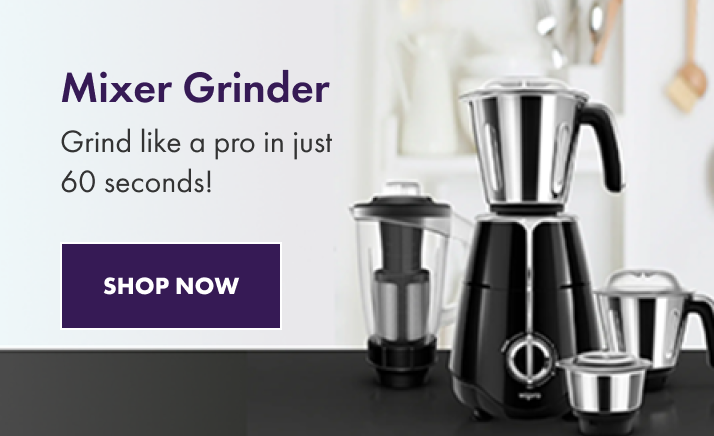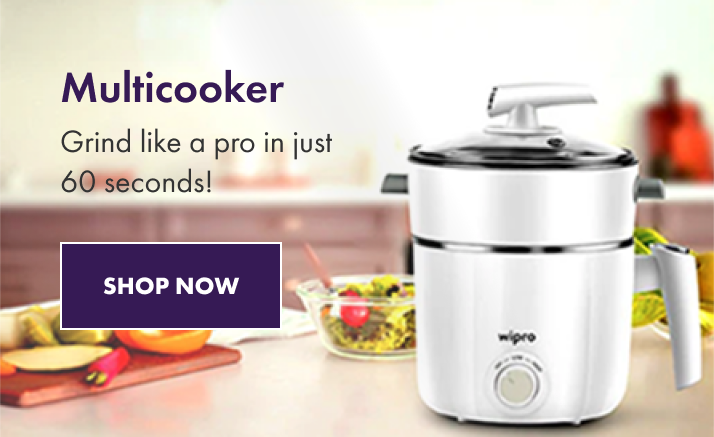Drinking fruits and vegetable juice is a trend that is catching up fast worldwide. It is a great way to get your daily dose of essential nutrients and live a healthy life. If you are looking to purchase a juicer at home, you will find plenty of options in the market. There are cold press juicers, fast juicers, centrifugal juicers, masticating juicers, and slow juicers, and nowadays, even the hand blender can help you extract juice.
While all types of juicers perform the same task, and let you extract, it is the method of juicing that sets them apart from each other. So, choosing the right type of juicer can be overwhelming. But to make the right choice you must be aware of the difference between these juicers.
In this blog, we do a slow juicer vs juicer comparison based on different factors so that you can make the right choice. So, let us get started without any further ado.
Juice Preparation Method
The regular juicers or fast juicers have a drum inside, and they have a higher RPM (rotation per minute). When you put the ingredients inside the juicer, the drum starts spinning fast, grating and churning the ingredients to extract juice.
On the other hand, slow juicers like the Vesta FS201 Cold Press Slow Juicer offered by Wipro Appliances use cold press technology. In this juicer, the ingredients are crushed gently with the help of a powerful mortar when you put them inside.
Slow juicers have very low RPM, like the Vesta FS201 juicer, which has 55 RPM. This allows you to extract more juice gently from the ingredients, thereby preserving the vital substances and vitamins.
Feed Tube
If you are using a regular or fast juicer at home, you don't have to cut the ingredients. The feed tube on the juicer is usually wide, allowing you to put whole ingredients in at once. Consequently, you don’t have to spend too much time preparing the ingredients to extract juice.
The mouth of a feed tube in a slow juicer is usually narrow. This means you will have to chop the ingredients into smaller pieces before you juice them. Because of the cutting work involved, the juicing time is longer. However, it is worth the time because you get tastier, nutrition-rich, and a higher amount of juice than you get in ordinary juicers with the same amount of ingredients.
Suitability
When buying a juicer, one of the most important factors you must consider is the type of ingredients you can use in the juicer and whether they suit your needs.
Regular fast juicers extract the same amount of juice from your vegetables and fruits as you may do with a citrus press. After the juicing process, if you check the ingredients, you may notice that there is still some wet pulp left. Hence, fast juicers are not suitable for juicing ingredients with a low moisture content, like bananas or nuts.
With a slower juicer, you don’t have to face any such problems. It is specially designed to extract juice from all kinds of ingredients, be it fruits, vegetables, nuts, herbs, or a combination of all. With a slower juicer like the Vesta FS201 Cold Press Slow Juicer offered by Wipro Appliances, you can use any ingredient to make a juice and benefit from its health benefits.
Quality of juice
The juice extracted from a fast juicer is clear and looks like lemonade. It has a foamy texture and a slightly altered taste from the raw form of the ingredient. Also, because of the high speed and the heat generated during the juicing process, the juice has a shorter shelf life.
Many health experts and nutritionists suggest using a cold press juicer to make juices at home because the quality of the juice is exceptional. The juice is thin and less clear than what you get from a fast juicer.
This is mainly because slow juicers retain high fibre from the ingredients. Since no heat is produced during the juicing process, the juice made from slow juicers has a longer shelf life and tastes better.
Nutrition retention
Regular juicers are infamous for losing a significant amount of nutrition from the ingredients because of the high-speed extraction process and the high temperature generated inside. This means your juice is not as nutritious as it should be.
With a slower juicer, you can be assured that every glass of juice you extract is rich in nutrition, and you get the full health benefits of the ingredients. The slow crushing process retains the nutrients, resulting in a healthier juice.
So, with the above slow juicer vs juicer comparison, you know that a slow juicer is a clear winner. Bring home the Vesta FS201 Cold Press Slow Juicer offered by Wipro Appliances today, and start your day every day with a glass of refreshing, tasty and healthy juice. It is a great way to take a step forward towards healthy living.
To know more about the features or to buy the Vesta FS201 Cold Press Slow Juicer offered by Wipro Appliances, click here.








































































































































































































































































































































































































































































































































